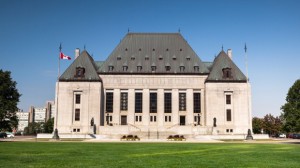 Everyone knows to avoid politics and religion in polite conversation. Not any longer. The Supreme Court’s unanimous decision to rescind the ban on physician assisted suicide promises to make politics and religion very popular topics. Here’s some of the coverage so far:
Everyone knows to avoid politics and religion in polite conversation. Not any longer. The Supreme Court’s unanimous decision to rescind the ban on physician assisted suicide promises to make politics and religion very popular topics. Here’s some of the coverage so far:
Last summer, the media exploded after a walk-in clinic doctor refused to give a young woman birth control pills. The Toronto Star said that “Doctors who play God can be pastors not physicians.” The Star rocked the College of Physicians and Surgeons of Ontario (CPSO) with, “If the college fails to reassert itself as a self-governing authority, let the provincial government step in to defend patient rights under the Ontario Human Rights Code. Queen’s Park could do that by de-delegating the college’s authority and re-regulating medicine on our behalf.” De-regulation scares the CPSO more than anything. It immediately tackled a rewrite of its 2008 policy, “Physicians and the Ontario Human Rights Code”.
A number of doctors agree with the Star. They insist physicians must submit their personal beliefs to their patients’ requests. If a patient wants a legal, available treatment, then a doctor shall comply or refer the patient to another doctor. Noncompliant doctors should face discipline. In other words, refuse the pill; lose your licence.
These same doctors usually emphasize the role of evidence, science and objectivity in medicine. In their view, medical practice is crisp, uniform and evidence based. There’s little need for doctors to rely on personal ethics or morality in their decision making. In fact, aside from the Georgetown Mantra (Principles of Biomedical Ethics), doctors should leave their personal morality at the door (which is, of course, a moral position of its own).
But experts tell us that medicine isn’t crisp, uniform or even as evidence-based as we would like. Sherwin Nuland, author of the best seller How We Die: Reflections of Life’s Final Chapter, New Edition, also wrote about uncertainty in The Uncertain Art: Thoughts on a Life in Medicine
. Whether people call it art, wisdom or clinical judgment, medicine appears less black and white and more often frustratingly grey. It makes medicine an intrinsically moral profession. Even with solid, evidence-based treatment guidelines, doctors still must work to explain, encourage and support patients to carry through with what’s good for them. Governments started paying physicians incentives based on how many patients doctors convince to agree with current clinical guidelines where they exist. Medicine is not crisp and clear. Physicians require acute moral sensitivity since almost everything they do involves moral agency (see Medicine as a Moral Practice).
Even if we grant that patients’ rights should trump doctors’ beliefs, does this apply to everything? Should doctors comply with every patient request so long as it’s legal and doesn’t hurt anyone else? Should doctors be forced to give narcotics for chronic pain to everyone who asks for them in the emergency department? What about X-Rays and blood work? Many investigations aren’t cut and dried, evidence-based. Should doctors always rescind their clinical judgment in favour of a patient’s demands if there’s no evidence to guide them? What if sex selection becomes legal in Canada? Should doctors be allowed to refuse to help parents choose the sex of their children?
The Supreme Court stressed that doctors “cannot be compelled to assist someone in suicide“. It seems, for now, that doctors’ beliefs might trump patients’ rights. Pending the CPSO update on Human Rights, the College might still force physicians to refer patients for assisted suicide. If patients request it, doctors might have to choose between their medical licence and their Hippocratic Oath: “I will not give a lethal drug to anyone if I am asked, nor will I advise such a plan…”
The federal government has one year to draft new legislation. In the meantime, expect to find politics and religion in conversations everywhere.
photo credit: ctvnews.ca

I applaud your use of the Hippocratic oath, most who quote it conveniently forget the part mentioned above.
I also note that we have become a society that seems to crave death. However, we use a variety of euphemisms for killing, eg death with dignity, assisted suicide. We even relate it to how we treat animals. Yet! I have never heard a proponent say lets have our loved one put down, which is what they are in effect requesting
Thanks so much for taking the time to read and share a comment, Raymond!
Perhaps the Hippocratic oath should be trashed, rewritten or ignored completely? I suspect many have tried all three. It has an irritating habit of popping up in physicians’ minds.
You make a solid point about what language we use. On the one hand, proponents of physician assisted suicide nearly boil at the use of some words. Much of the debate works to change language to influence public support. While I agree with calling out equivocation wherever we find it, I wonder whether equating ‘physician assisted suicide’ with ‘have your loved on put down’ might close all discussion with those you hoped to engage? It will resonate with those who understand and support your view but at what cost? Having said that, your comment definitely sparks more discussion! In that sense, it’s exactly the kind of edgy comments we need to spark debate.
Thanks again for taking time to share.
Best,
Shawn